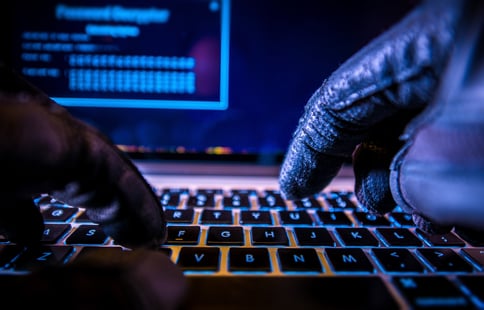As the COVID-19 situation continues to rapidly change, we remain committed to the personal and financial safety of our associates and clients. During times such as these, it is important to stay vigilant and aware as fraudsters are working around the clock to capitalize on the current state of uncertainty with COVID-19, causing an increase in risk of falling prey to fraudsters and financial scams.

Here are some tips to help you remain vigilant:
Beware of Scams. The red flags associated with fraudulent emails or text messages claiming to come from financial institutions, charities, or government agencies may sometimes be difficult to spot. These types of communications, sometimes called "phishing," trick users with a sense of urgency for information in an attempt to steal user data.
The Federal Deposit Insurance Corporation (FDIC) is reporting that scammers are using the FDIC name and logo, as well as names of actual employees in recent fraud attempts. The types of communication for the scam vary, but include emails, phone calls, letters, text messages, faxes, and social media. Be aware of any message asking you to “confirm” or “update” confidential information, such as social security numbers and/or bank account numbers.
Suspicious Emails. If you receive a suspicious email message appearing to come from Hancock Whitney, do not respond. Forward a copy of that message to us at phished@hancockwhitney.com and delete the message. Never click any links or attachments in a suspicious email.
Suspicious Text Messages. If you receive a text message appearing to be from us requesting that you call a phone number regarding COVID-19, the text did not come from the bank. Do not respond to such a text message and do not provide any personal or confidential information. If you have responded to such a message and believe you have provided personal information, please contact Hancock Whitney immediately at 1-800-448-8812.
Online and Mobile Banking Credentials. Fraudsters are sending emails, creating websites and developing phone apps related to COVID-19. These are designed to trick individuals into clicking on malicious links disguised as helpful resources. These scams can contain malware meant to steal online banking credentials and/or credit card information.
Criminals may also pretend to be a financial institution or government agency representative, asking for personal information and/or online banking credentials for “financial relief” purposes. As a reminder, NEVER divulge your User ID and Password to unknown sources.
Remember: Although Hancock Whitney may call clients for verification purposes or send product and promotional offers via email, we will never ask a client for passwords or their online banking credentials.
Bogus Solicitations/Organizations. Fraudsters are also impersonating legitimate organizations such as the World Health Organization (WHO). In the case of the WHO, they are using fake images and charts, embedded in the body of an email that may appear legitimate. Be suspicious of any charity, business or individual requesting funds in cash, via wire transfer, gift card, or through the U.S. Post Office. Do not send money through any of these channels. Research charitable sites soliciting donations in connection with COVID-19 before giving. For online resources on credible charities, visit the Federal Trade Commission website.
For more Information and resources, visit the Hancock Whitney Security Center and Treasury Services Cybersecurity Awareness pages on our website.





